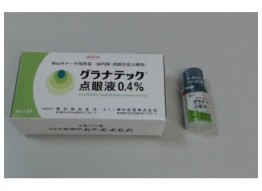Finasteride tablets 0.2 mg for male pattern alopecia (hair loss)
What are Finasteride tablets 0.2 mg for male pattern alopecia?
Finasteride is a medication commonly prescribed for the management of male pattern alopecia, also known as androgenetic alopecia. It operates through a specific mechanism of action aimed at retarding the progression of this condition.
Male pattern alopecia is primarily influenced by the hormone dihydrotestosterone (DHT), a derivative of testosterone. DHT is believed to contribute to the miniaturization of hair follicles in individuals genetically predisposed to this type of hair loss. Finasteride addresses this issue by inhibiting the action of an enzyme known as type II 5α-reductase.
Type II 5α-reductase is responsible for the conversion of testosterone into DHT within hair follicles. By suppressing the activity of this enzyme, finasteride reduces the levels of DHT in the scalp. Lower DHT levels can lead to a decrease in the negative effects associated with this hormone on hair follicles, such as hair thinning and eventual hair loss.
Finasteride in tablet form is usually administered once daily. You can take the tablets with you when travelling, and unlike hair growth lotion, this medicine doesn't ruin your hairstyle or grease the hair. Clinical studies have shown that finasteride can slow down the progression of male pattern alopecia in a substantial number of cases. However, it may take longer period of consistent use before noticeable improvements in hair growth or retention are observed.
Active principles: finasteride
Amount: 28 tablets (14 tablets * 2)
Maker: Sawai Pharmaceutical Co., Ltd., Osaka, Japan
Indications: retarding progression of male pattern alopecia
How to take
For male adults: take 1 tablet (0.2 mg of the active principle) at a time, once a day. Your doctor may increase the dosage as necessary. However, the maximum daily dose of 5 tablets (1 mg) should not be exceeded.
Contraindications: do not use for patients planning to undergo prostate cancer screening (PSA test). Do not use for pregnant, breastfeeding or possibly pregnant women.
Important information
Do not break or crush this medicine.
While this medicine is not designed to use in female patients, it's particularly important not to use it for pregnant women due to its teratogenic effect.
If an allergic reaction occurs, patient needs to stop using the medicine and consult with their doctor. If patient is taking any other medication or treatment, they should consult with their doctor in advance.




